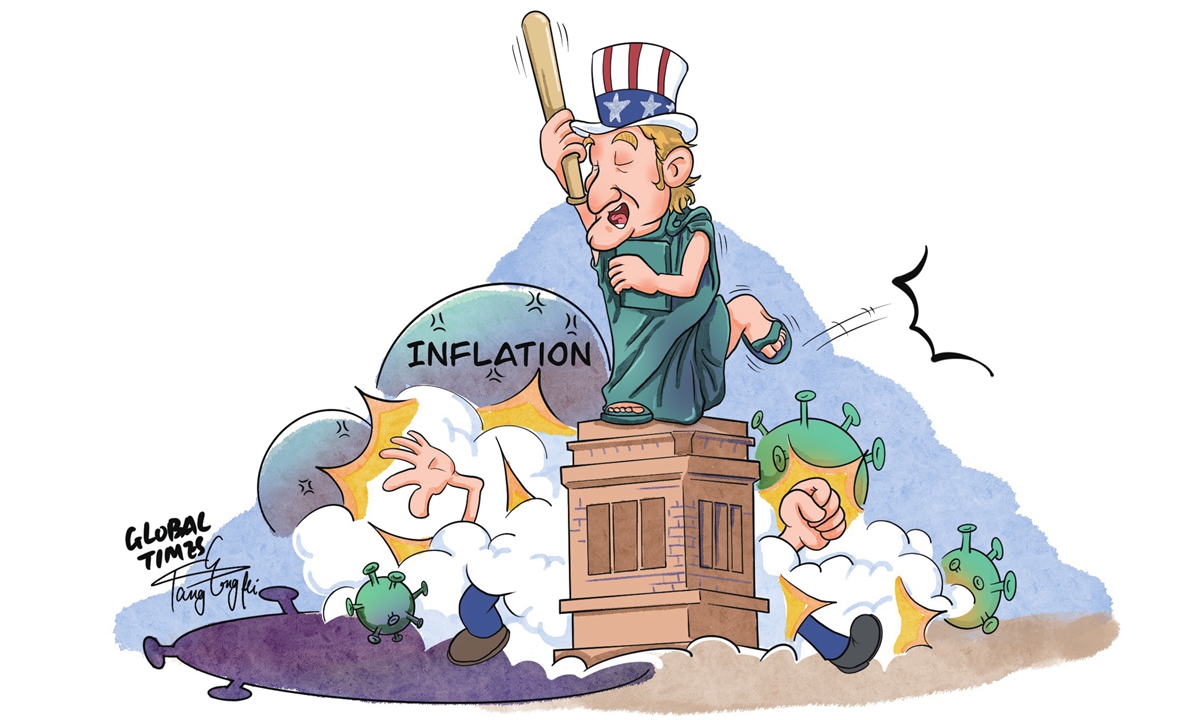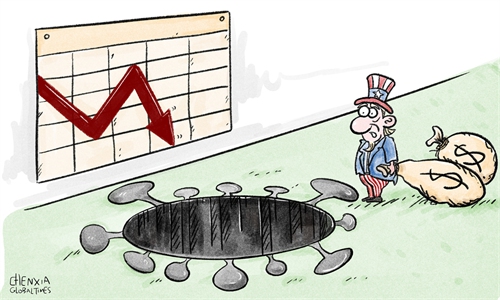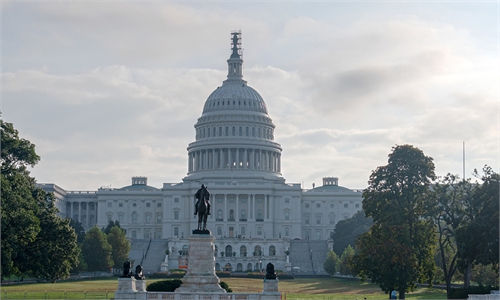COMMENTS / EXPERT ASSESSMENT
Decay of US democracy also reflects failing economic system

Illustration: Tang Tengfei/Global Times
US President Joe Biden's exclusive summit for democracy, which was even skipped by some of the US' allies, prompted a rare global discussion of what real democracy is and whether the US can still represent democracy. The questions wouldn't draw much dispute just a few years ago as the US was proclaimed to be the "beacon of democracy." But what the world has witnessed over the past several years is the rapid decay of American democracy.Biden clearly intended to use the summit to reinforce the US' dominance in the so-called "free world" and outshine rapidly rising competitors like China, but the event, instead, unleashed widespread criticism and doubt over the US system, as many around the world, including US allies, and within the US largely focused on the deterioration of US democracy and grave threats it faces going forward.
As I followed the discussions, a rather random name repeatedly came into my mind: Ashli Babbitt, a 36-year-old American woman who was shot dead during the protests at the US Capitol on January 6, 2021. Following her death, numerous media reports chronicled her journey that led to that deadly day.
A US veteran who spent 14 years in the US Air Force and served in two wars, Babbitt was in serious financial trouble. She owned a pool cleaning business in California and, to keep her small company afloat, she had taken out a short-term loan with an interest rate of 169 percent. She failed to pay back the $65,000 loan shortly after signing the agreement and was sued by the lender. Then she started to follow online conspiracy theories, which led to her death at the seat of US democracy.
Babbitt's tragic story is the personification of the failure and false promise of American democracy. She lost her life during protest of the result of the US presidential election that installed a president she did not choose. She thought it was her right under the US democratic system to choose her own political leader and to protest if she disagreed, but she was wrong and paid the ultimate price for it. Her action - and the protest on January 6 - was deemed by US mainstream media and elites as an insurrection and an attack on US democracy.
What's more tragic is that what she died for - to prevent Biden from becoming president and to reelect Donald Trump - would not have solved any of her financial troubles. That brings us to the crippling US economic governance that fails to deliver for many ordinary Americans like Babbitt and even forced them into making tough and sometimes deadly choices.
No doubt, the US is still the world's largest economy and its comprehensive economic and technological strength is still second to none. However, the US economy is faced with a litany of increasingly existential problems - an ever-widening wealth gap that only benefits the top 1 percent and leaves the rest in the economic despair, a non-existence manufacturing sector, rapidly declining technological innovation, crumbling infrastructure, mounting debts and so on.
Many of those problems have been laid bare during the COVID-19 pandemic. In 2020, the 400 richest Americans added $4.5 trillion to their wealth, an increase of 40 percent, even as most Americans struggled, according to Forbes. Around 2015, the share of total net worth held by the top 1 percent of Americans surpassed that held by the bottom 90 percent and that divergence has only worsened since the COVID-19 pandemic, according Quartz.
Admittedly, many countries around the world face similar problems the US face, including China. However, what makes the US stand out is its crippling economic governance system that has failed to provide any solutions to those problems, let alone effective and feasible ones that can be carried out. On all of the issues - from taxes to government spending, US Democratic and Republican lawmakers can't agree on anything and have been mired in gridlock for years.
In comparison, China, which also faces many economic challenges, is moving swiftly to counter emerging challenges, while listing numerous long-term development goals backed by specific action plans, such as the goals of achieving common prosperity and reaching carbon neutrality. Whether or not those major goals will be achieved, the path for China is very clear, unlike the US, where there is no long-term development plans to speak of.
As we have witnessed over the past several years, the race between China and the US is ultimately about the efficiency of their markedly different systems. It will not be determined by which country is louder in advertising its system, like the democracy summit was aimed at doing, but rather by which country can deliver for its people.
The author is an editor at the Global Times. bizopinion@globaltimes.com.cn



